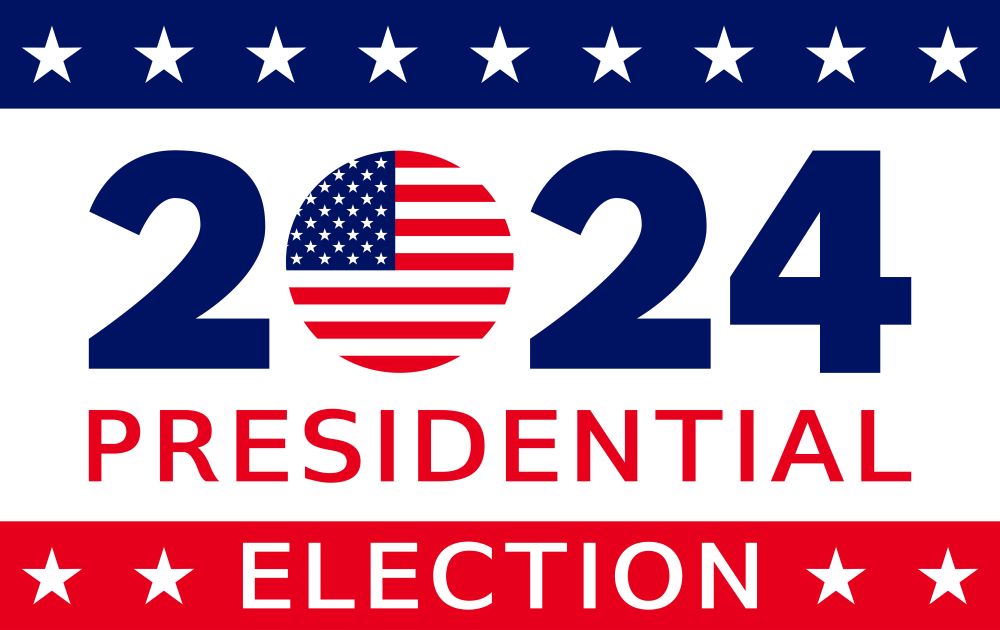Editor’s Note: In light of Saturday’s assassination attempt of former president Donald Trump, college campuses and other facilities that will be hosting this year’s presidential campaign visits should review the following information to maintain security.
It’s 4 p.m. on a Friday afternoon, and you have the weekend on your mind. The next thing you know your telephone rings. On the other end is the resident agent in charge for your local U.S. Secret Service office. After all it is a presidential election year, and that call should not have been unexpected. Most presidential candidate campaigns are fluid in nature, and visits are often planned on short notice. If you are the lead person from your agency, you are in for some very long days of planning.
Colleges, universities, schools and hospitals across the country offer attractive backdrops for presidential campaign visits. The concept and the issues that arise are the same for most of these types of visits. Being prepared with that knowledge will contribute to a successful event.
Presidential Campaign Event and Protection Details Overlap
Early in a candidate campaign, the candidate may not have Secret Service protection. Usually within four months (120 days) of a general election, those candidates who have been determined to be major presidential and vice presidential candidates (and their spouses) are assigned a U.S. Secret Service protection detail. This process is outlined in Title 18 United States Code § 3056.
In planning for a campaign visit, you should expect to be involved in two processes: the event and the protection detail, which overlap. The event will be planned by the campaign staff in collaboration with the Secret Service. The protection detail is the responsibility of the Secret Service, which will seek input from the local law enforcement agency. You will be responsible for crowd management and traffic control.
Related Article: Preparing for Presidential Campaigns and Protests on Campus
Usually representatives from the presidential campaign staff and the U.S. Secret Service advance teams will arrive in town around the same time. This may be a week ahead of time, or it could be a couple of days prior to the visit. One of the first things both advance teams will want to do is a walkthrough of the venue. Sometimes the venue location has not been settled on completely, and the presidential campaign staff may want to look at multiple venues on your campus. It is not unusual for pre-selected venues to be changed after the campaign staff lead advance team arrives and assesses the venue. You may spend another day or two touring different venues on your campus. A large auditorium is not automatically the type of venue the campaign staff wants. This determination largely depends on the stage of the campaign and the message and backdrop that they want to convey. During the campaign, your location may be one of several different stops in the same city or state on the same day.
The Secret Service Will Rely On You
The U.S. Secret Service subscribes to the counterpart philosophy and will rely on assistance from local law enforcement in planning and carrying out their protection detail. When the advance team of Secret Service agents arrives in town, they will hold a briefing with the host university, city, state and local law enforcement, as well as other public safety officials. The briefing will be conducted by the lead advance agent (Secret Service) for the visit and includes introductions, dissemination of intelligence information and discussion of the overall security operation. The local law enforcement jurisdiction should identify a counterpart as a liaison for the lead advance agent.
Once the venue is selected, the Secret Service advance team will want to start their planning process. A representative from your agency will be asked to assist with the planning. This person should be assigned as the counterpart to the Secret Service site leader. The site leader will be the Secret Service agent in charge of the site (venue). The planning will initially start with a walk through of the venue with representatives from the campaign staff, the host institution’s government relations and possibly a student organization representative. One problem often encountered at this point is too many people wanting to get involved in the process. Be prepared to do multiple walkthroughs with different groups. This is important because plans change quickly.
Checkpoints, Security Perimeters Are Established
After the walkthrough, in collaboration with the Secret Service, the presidential campaign staff will plan the setup of the venue. Once the set up configuration is agreed upon, the Secret Service will continue their planning. This includes conducting site surveys that assess staffing needs and equipment. Checkpoints and security perimeters will be established, and evacuation routes will be planned. A command post and other important locations will be identified. It is not unusual for the military and other federal agencies to be involved in the security operation, especially if your campaign visit involves a standing president running for re-election. It should be noted that the Secret Service will have a command post that will include representatives from the other agencies involved.
Keep in mind that the security of the candidate is the responsibility of the Secret Service. It is the local jurisdiction’s responsibility for crowd and traffic management.
Who Pays For Presidential Campaign Security? You Do.
Several issues are almost always encountered with crowd and traffic management. One question that always comes up is, “Who is responsible for paying for the extra staff to manage the crowd and police officers to direct traffic?” The campaign staff will always tell you it is the Secret Service’s responsibility to pay police officers since it is part of the protection of the candidate. However, do not expect to be reimbursed by the Secret Service; they do not pay for your service.
Certain elements of the crowd management plan could very well be considered part of the protective operations. Is traffic direction part of the protective operation? You institution should plan on covering the cost of additional police officers and other security staff. One consideration would be to build some of the cost into the pric e of the venue.
Handle First Amendment Issues With Care
For public institutions, another issue that comes up is that of free speech. The campaign staff will not want anyone to be allowed into the venue with signs that support their candidate’s opponent or are disparaging to their candidate. Since the space is being leased by the campaign staff, they will usually restrict what can be brought into the venue; this usually includes signs. The presidential campaign staff will usually pass out their own signs to patrons as they enter the venue. The Secret Service may very well screen patrons entering the venue and will restrict contraband including weapons from entering. The campaign staff or their designees will enforce the restrictions on signs and banners.
Two other free speech issues that may come up are protesters outside and/or inside the venue. Protesters inside the venue may try to disrupt the candidate or other speakers by heckling or shouting down the speaker.
Related Article: More Advice on Hosting Presidential Candidates
In handling protesters outside the venue, local laws and ordinances should be followed. The Secret Service will not get involved in any of the free speech issues; remember their mission is the protection of the presidential candidate. The campaign staff may very well try to get involved in these issues as they will demand that action be taken right away. Often times they are not aware of local laws or ordinances. That is why a strategy to respond to these issues should be determined during the planning phase. The local committee that is planning the event should include at a minimum the local sponsor of the campaign (usually a student organization), venue management, law enforcement/public safety, representative of the campaign staff, institution’s government relations, student life and legal affairs.
A strategy on how to respond to protesters should be developed. It is recommended that your legal department give you guidance in this area. Local laws and ordinances, and even recent Supreme Court rulings on free speech issues should be reviewed.
Another issue that needs to be addressed in the event planning is crowd capacities. The campaign staff will want a “full house.” Again they may not be familiar with local laws and ordinances. The person in your jurisdiction with the authority to enforce this issue should be involved in the planning and should be present during the event. In most jurisdictions, this will be the fire marshal.
Briefings Must Cover Protection Details
So far everything that has been covered involves event planning. Now the day of the visit has arrived. This day can be broken down into several phases: the briefing, site preparation (which includes securing the venue), the arrival, the event and the departure.
The briefing will depend a lot on the size and staffing of the event, in addition to the number of different agencies involved. If it is a large event, there should be a command briefing that includes command officers from each agency involved and supervisors for each area of responsibility, such as traffic and crowd management. It is import that an overview of the protection detail be reviewed at each of the different briefings. These commanders will then go back and brief their individual agency and offices.
Be prepared to have officers posted on site to secure the venue several hours prior to the start of the event. Depending on the nature of the event, the program may very well start before the candidate arrives.
Once the candidate arrives, often times there will be a meet and greet session set up by the campaign staff. This may occurred prior to the candidate taking the stage or after, or sometimes both. If a meet and greet is at the conclusion of the event, the security perimeter will remain in place until the candidate departs.
Conduct Hot Washes, Debriefings Immediately After Event
Once the candidate departs and the crowd leaves, your job is not quite over. A hot wash and an after action debrief should be held at the conclusion of each event. It should be stressed that we learn from our experiences, not mistakes.
A hot wash is an informal discussion conducted immediately following the conclusion of the event. This is an open discussion that identifies what went well and what needs improvement. Each supervisor should be conducting a hot wash with the group they supervised. Feedback from all agencies involved should be requested.
Next should be an after action debriefing. The difference between a debriefing and a hot wash is the level of detail. The after action debriefing should involve the supervisors from each agency that participated. The after action debriefing is to help you identify operational issues, lessons learned and contribute to initiating corrections that could be made for the next similar event. Information gained from the hot wash and debriefing should then be used to put together a formal after action report.
Close communication, cooperation, and collaboration between you (and your institution) with the campaign staff and the Secret Service will make the visit a success.
Richard Morman is the former deputy chief of police at the Ohio State University, which has hosted many presidential candidate visits. He is now a consultant. This article was originally published in 2012, but the practices outlined still apply.
Note: The views expressed by guest bloggers and contributors are those of the authors and do not necessarily represent the views of, and should not be attributed to, Campus Safety.







